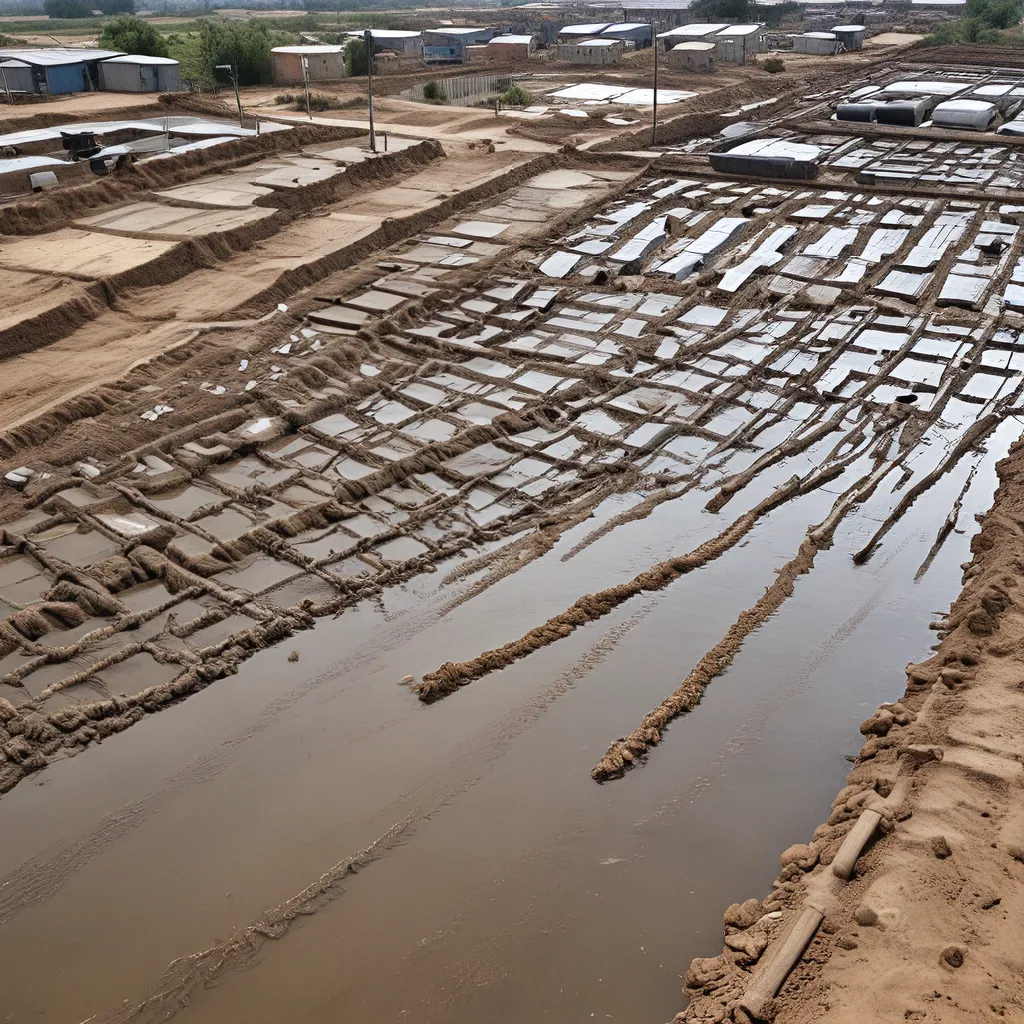
Weathering the Storm: How Wastewater Treatment Providers Can Keep Communities Safe and Resilient
As the world grapples with the ever-increasing challenges posed by climate change, natural disasters, and other crises, the importance of robust and resilient wastewater treatment systems has never been more crucial. In this article, we’ll explore the crucial role that wastewater treatment providers play in ensuring the continuity of critical services and safeguarding the environment, even in the face of the most daunting circumstances.
Bracing for the Unexpected: Wastewater Treatment in Times of Crisis
When disaster strikes, whether it’s a hurricane, a wildfire, or a global pandemic, the ability of wastewater treatment facilities to maintain their operations is truly put to the test. These facilities are the unsung heroes, quietly working behind the scenes to protect public health and the environment, even when the world around them is in turmoil.
One of the primary challenges faced by wastewater treatment providers during crises is the disruption to their supply chains. Critical equipment, chemicals, and spare parts may become difficult to obtain, as global supply chains are strained and transportation networks are disrupted. Wastewater treatment professionals must be nimble, resourceful, and proactive in securing the necessary resources to keep their facilities running smoothly.
Another pressing issue is the potential for infrastructure damage due to the sheer force of natural disasters. Flooding, high winds, and other extreme weather events can wreak havoc on wastewater treatment plants, pipelines, and other essential infrastructure. Maintaining the structural integrity of these facilities and ensuring their continued operation is a constant battle for these unsung heroes.
Safeguarding the Environment: The Wastewater Treatment Providers’ Crucial Role
While the primary focus during a crisis may be on ensuring the continuity of critical services, wastewater treatment providers must also remain vigilant in protecting the environment. Untreated or improperly treated wastewater can have devastating consequences for local ecosystems, contaminating waterways, harming wildlife, and posing a threat to public health.
Wastewater treatment professionals must navigate the delicate balance of maintaining operations while also adhering to stringent environmental regulations. This requires advanced planning, redundant systems, and a deep understanding of their facilities’ vulnerabilities. By proactively investing in resilient infrastructure and implementing robust contingency plans, these providers can ensure that even in the midst of a crisis, the environment remains protected.
Building Resilience: Strategies for Wastewater Treatment Providers
Recognizing the vital role that wastewater treatment providers play in maintaining community resilience, the U.S. government has taken steps to support and empower these essential service providers. Through initiatives like the Executive Order on Tackling the Climate Crisis at Home and Abroad, policymakers are prioritizing investments in infrastructure, fostering innovation, and promoting collaboration to strengthen the resilience of the wastewater treatment sector.
One key strategy for building resilience is diversifying supply chains and ensuring that critical resources are available from multiple sources. This can involve pre-emptively stockpiling essential equipment and supplies, establishing partnerships with alternative vendors, and exploring the potential of domestic manufacturing to reduce reliance on global supply chains.
Another critical component of resilience is effective communication and coordination. Wastewater treatment providers must work closely with local authorities, emergency responders, and other stakeholders to ensure a seamless and coordinated response during times of crisis. This includes developing robust emergency plans, conducting regular drills and exercises, and maintaining strong relationships with the communities they serve.
Embracing Innovation and Adaptation: The Future of Wastewater Treatment
As the challenges posed by climate change and other emerging threats continue to evolve, the wastewater treatment industry must be at the forefront of innovation and adaptation. This may involve exploring the potential of renewable energy sources, such as solar or biogas, to power their facilities and reduce their carbon footprint. It could also mean investing in advanced monitoring and control systems that can better predict and respond to disruptions in real-time.
Additionally, wastewater treatment providers must be willing to collaborate with researchers, academia, and other industry partners to develop novel solutions and share best practices. By fostering a culture of continuous improvement and a willingness to embrace change, these unsung heroes can ensure that they remain resilient and prepared to face whatever challenges the future may hold.
The Unsung Heroes of Community Resilience
In conclusion, the wastewater treatment providers who work tirelessly to keep our communities safe and our environments protected are truly the unsung heroes of our time. Their dedication, innovation, and resilience in the face of crises are essential to the well-being of our society and the preservation of our natural resources.
As we navigate the uncertain waters ahead, it is crucial that we recognize and support the crucial role that these professionals play. By investing in their infrastructure, empowering them with the resources they need, and fostering a culture of collaboration and adaptation, we can ensure that our communities remain resilient, sustainable, and prepared to weather any storm.
So, the next time you flush the toilet or turn on the tap, remember the hardworking men and women who are quietly safeguarding our most precious resource: our water. They are the unsung heroes of our time, and they deserve our utmost respect and gratitude.